What Is Fashion Revolution Week | The Rana Plaza Disaster

“I made your clothes.”
Celebrating Fashion Revolution Week
It’s Fashion Revolution Week and thousands of people all over the world are asking their favourite brands: “Who made my clothes?” It’s a big question to ask fashion brands, and we encourage you to keep asking.
“I made your clothes.” Those are the words you’ll see in social media posts, written on printed sheets of paper and held up by garment workers from every corner of the globe who work for ethical and sustainable fashion companies.

Not only is this a wonderful opportunity for independent brands to share their stories transparently, but it also amplifies the important conversation around ethical practices within the fashion industry.
What is the Fashion Revolution and why was it founded?
Fashion Revolution is a UK-based charity that was founded in 2013 after the Rana Plaza Disaster. Fashion Revolution Week runs for 7 days each year to mark the anniversary of the tragedy and put pressure on global fashion brands to clean up their supply chains. This initiative helps make sure that the hard working garment makers within the fashion industry are seen and heard, and have the right to work in safe conditions and be paid fairly

The Rana Plaza Tragedy
On 24th April 2013, a factory in Bangladesh collapsed. It was the Rana Plaza factory, which housed several stories of production rooms that were filled with people. They were garment workers who were making products for major fashion outlets including Benneton, Bonmarché, The Children’s Place, Joe Fresh, Mango, Matalan and Primark.
Every day, more than 5,000 people worked in that factory. Those workers had complained of deep cracks in the factory walls in the days before the tragedy, and reports state that many workers pleaded that they should not be allowed to work. Concerns were ignored by management.
At 9:00 am, the building collapsed. It took just 90 seconds. Thousands of people were buried inside under rubble. 1,134 innocent people died and 2,500 more were seriously injured.

The fashion industry was, understandably, shocked by this tragedy, which led to an international outcry, media attention and workers protests about safety, workplace conditions and labour rights.
The disaster mobilised the Fashion Revolution movement, adopting the simple hashtag #WhoMadeMyClothes and encouraging consumers to ask those important questions and campaigning for fashion companies to increase transparency within their supply chains.

When we first founded Forage, our whole concept centred around the stories behind our products. Over the years, as we started to work with tailors and makers in India, we have enjoyed being able to share their stories with you..
Our hats all come with individual name tags and photos to tell you about that product’s maker. Over the years we have developed this concept, and now we have printed labels for many of our products containing photos of our makers with information about their work spaces.
We had planned to take photos with our makers again this year, but due to the global coronavirus (COVID-19) pandemic, our plans to visit our makers were cancelled. For the time being, unfortunately, we don’t have fresh imagery to share. However, we do still have stories to tell. This month we launched our new Meet the Makers section to our website, and we will be adding to it throughout April.
How you can get involved
There are many ways that you can get involved with Fashion Revolution week as a consumer, a retailer, producer or brand. Head over to https://www.fashionrevolution.org/ to find out more.

Browse through our ethically produced Jewellery, Pocket Belts and Clothing and find out more about the people who carefully handcraft them. Stay up to date with all the latest from us by signing up to our newsletter.

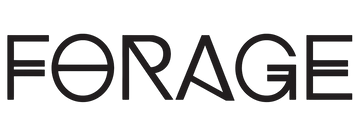








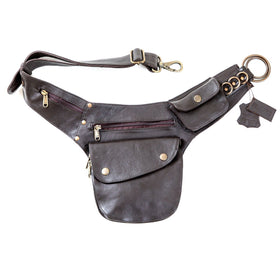
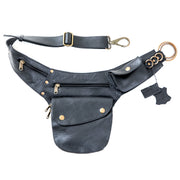
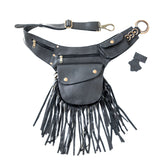
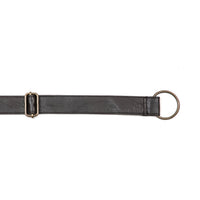
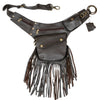



Leave a comment